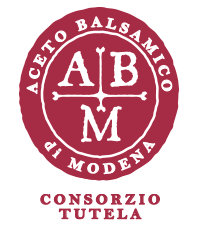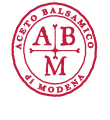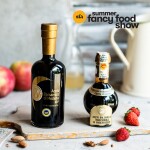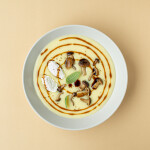Bruschetta with asparagus and quail eggs with Balsamic Vinegar of Modena PGI
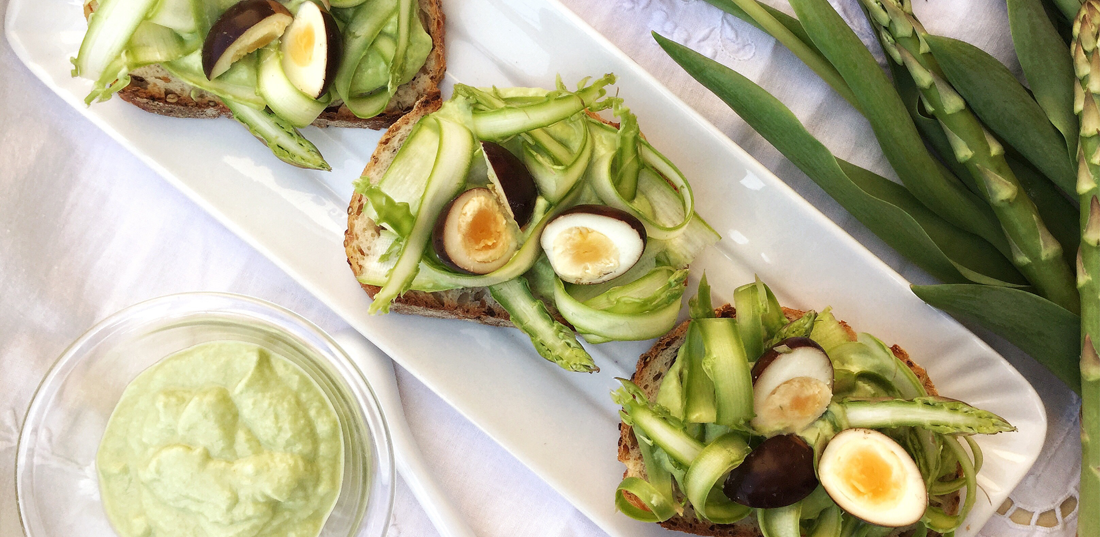
Ingredients (for 4 servings)
4 slices of wholegrain bread
12 quail eggs
8/10 green asparagus
1 dl Balsamic Vinegar of Modena PGI
40 g grated Parmesan cheese
Italian extra virgin olive oil
Rosemary
Bay leaves
Salt
Praparation
Author: Monica Bergomi
Place the quail eggs in a small pot with cold water, bring to a boil and cook for 3 minutes, remove from the pot and let cool in icy cold water. In a casserole, heat up the Balsamic Vinegar of Modena PGI diluted with 1dl water; in the meantime shell the eggs and place them in a mason jar, add the rosemary and two bay leaves, then cover with the hot diluted vinegar. Cap the jar and, once cooled, place in the fridge for at least 6/8 hours.
Wash the asparagus and chop off the tough stems’ end parts; cut in round slices and cook in little water slightly salted for 8/10 minutes.
Drain the asparagus slices and, using a hand blender, mix to a creamy consistency, then strain to retain the fibrous strains, add the Parmigiano Reggiano cheese, a spoon of oil and a few drops of Balsamic Vinegar of Modena PGI.
Using a potato peeler or a slicer, shave the asparagus into thin ribbons, from the base towards the tip, then transfer the asparagus ribbons in a bowl filled with water and ice. This passage will keeping the asparagus ribbons crunchy.
Toast the bread and spread on it the cream and the asparagus ribbons, which you will have drained, dried and dressed with oil and Balsamic Vinegar of Modena PGI; garnish with the marinated quail eggs cut in wedges.
We may not think about it so much anymore, but the alternating of the seasons not only marks the passing of time in nature, but also in our bodies. Actually, our body is in perfect synchronicity with nature. In the winter, while the fields are at rest, our metabolism slows down, but when the days lengthen and the countryside awakens, the first buds sprout and we rediscover our energy reserve.
Eggs are among the food items tied to the onset of spring. Hens, and quails also, lay eggs based on the length of sunlight hours: in the colder days of the year it is quite difficult to have a constant supply of eggs, while from April to September there are abundant, obviously, we are talking about eggs from cage-free and happy animals.
Quail eggs are used in the same way as hens’, but they are lighter, more delicate and lower in cholesterol. They have plenty of nutritional properties, and are important food for those who suffer from pollen allergies. Indeed, quail eggs are a useful supplement in cases of generic allergies and, in particular for those originating from grasses pollen: quail eggs contain micro quantity of wheat, corn, barley, rye, which can be an effective low dose desensitisation therapy. They are rich in phosphorus, calcium, potassium, proteins and vitamins. They also contain HDL cholesterol, the so-called good cholesterol, and not the LDL, the bad one.
Nature makes it possible for us not to eat the same type of food all year long, so we learn to switch, to try new flavours and, why not, new recipes, such as this delicious bruschetta with eggs marinated in Balsamic Vinegar of Modena PGI and asparagus; an excellent starter, ideal also for an important meal or, as a more generous portion, it can be a nutritionally complete light lunch.

